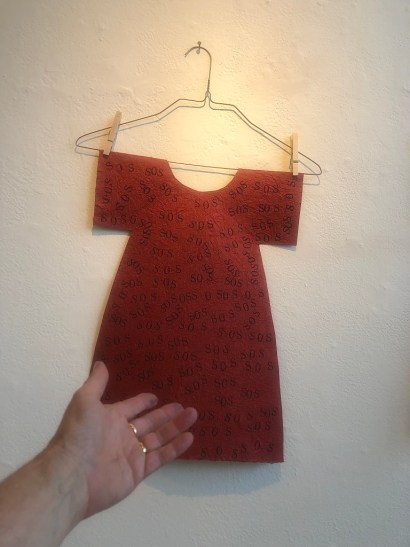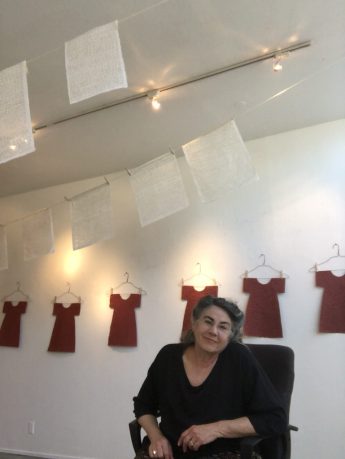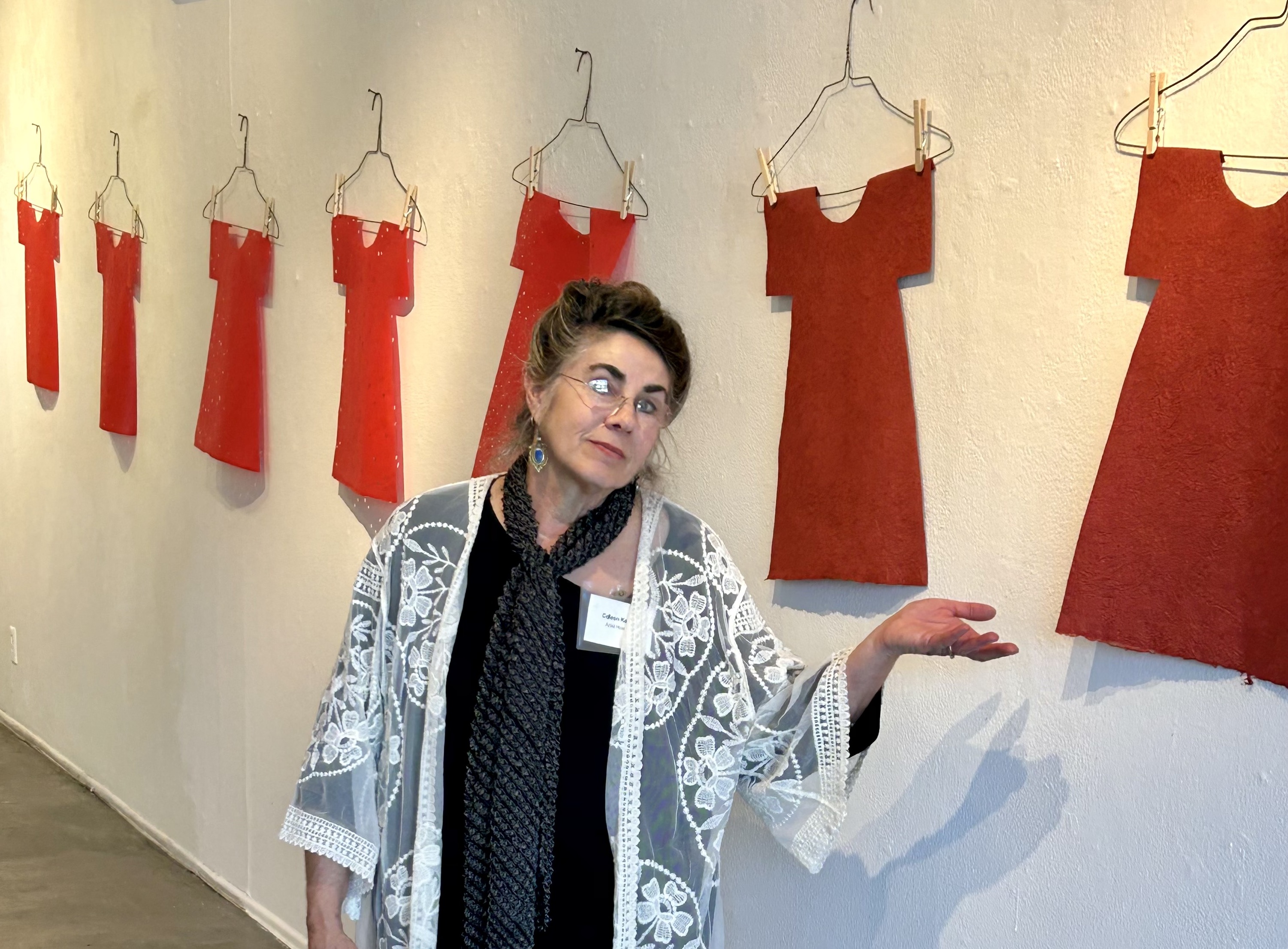Last month, I wrote about my twenty year journey at the Santa Barbara Writers Conference. What I didn’t talk about was the team-teaching I do with mystery writer Lida Sideris. A few years before the pandemic, Lida and I started offering a workshop titled, “Writing through the Fear.” This year, we did a workshop on how to be your own best publicist. In our workshop, we talked about how to promote your writing and books without hiring an expensive publicist. Our styles are very different, but we work well together and have great energy as a team.

When a friend and local artist, Colleen M. Kelly asked me to write a poem for her solo exhibition, The Dichotomy of Laundry, I was reluctant because I’ve been so busy and the request meant having to write a poem within two weeks, but I am happy I agreed.
This wasn’t the first time I had written a poem in response to Colleen’s work. Her artistry is often playful while addressing serious and important issues, especially with regard to feminism and the environment.
For me, ekphrastic poetry is fun because it gets me out of my head. The Dichotomy of Laundry is Colleen’s initial response to the Supreme Court’s reversal of Roe v. Wade. However, there’s so much more to the exhibition that covers a myriad of women’s issues, from coming of age, to violence against women, to abortion, to missing women. While the exhibit recalls childhood, hung laundry, and women’s work, it’s about the times a woman has fought for her life or needed to tap out some form of S.O.S. In a way, the exhibit is her own cry for help during a time when the women’s rights that her generation helped achieve are being walked back before her eyes.
With a lit stick of incense, Colleen burned morse code on Japanese Gampi paper. The second part of the exhibit features red dresses on wire hangers, some of the dresses are riddled with the letters S.O.S. The presence of wire hangers also reminds us of the horror of the history of illegal abortions.
Colleen’s mantra is “Art is healing.” She thought it was a good idea to do something that was calming. The volume of “laundry” she produced is a testament to the calming nature of producing the work.

When I agreed to write a poem for Colleen, I had no idea that her work would have such a profound effect on me. I contemplated her images from a previous installation in Los Angeles, as well as those on her Instagram account @drapedinwonder. I sat down to write and was so moved and inspired that I wrote a series of five poems, enough for a small chapbook, instead of the one poem she had asked for.
In regards to collaborating, Colleen says she doesn’t like to micromanage other artists: “When I collaborate with people, I want them to do what they do best.” She brought in a dancer and improv artist for her exhibition in Los Angeles. At her opening in Santa Barbara on Friday, July 7 at Silo 118, I will read my ekphrastic poems for the exhibit.
My collaboration with Colleen elicited the kind of creative outpouring I hadn’t experienced since writing my first chapbook, Folsom Lockdown, poems that I wrote after visiting my father in Folsom prison. In a similar experience, I sat down to write a single poem and could not stop.
Have you had an experience you can’t stop thinking about? Send in your poems to poetry@independent.com.
View Colleen M. Kelly’s solo exhibition, The Dichotomy of Laundry at Silo 118 in the Funk Zone 118 Gray Avenue, Santa Barbara, on Friday, July 7, from 5 to 7p.m.
Woman
The first poem in “The Dichotomy of Laundry” Series.
By Melinda Palacio
Her gear appeared soft without instructions.
On her bed, a belt to hold the pads of cloth
in the nameless space she hadn’t thought about.
If it weren’t for the trail of blood,
she could continue the game:
Cowboys and Indians, her older brother’s favorite.
She would even play with dippy plastic baby
dolls that neighbor Esther forced on her.
Why would she want to play at babies
when she had a baby brother to care for?
The gear on her pink pillow confirmed
What she suspected: at ten years old,
She was done with little girl stuff.
She was a woman.
Does it have to hurt so much?
Does there have to be so much blood?
She tugged on the clothesline between
Her apartment and the next building.
If Vilma, Esther’s older sister was home,
She would have all the answers.
Vilma at 12 knew everything.
S.O.S.
She wrote the letters on a blank piece of paper,
Hung it on the clothesline, but
Vilma was gone.
S.O.S.





You must be logged in to post a comment.